Why the BMW i3 is the best electric car on the planet
BMW's all-electric i3 is a huge technical achievement, but will it win over the doubters?
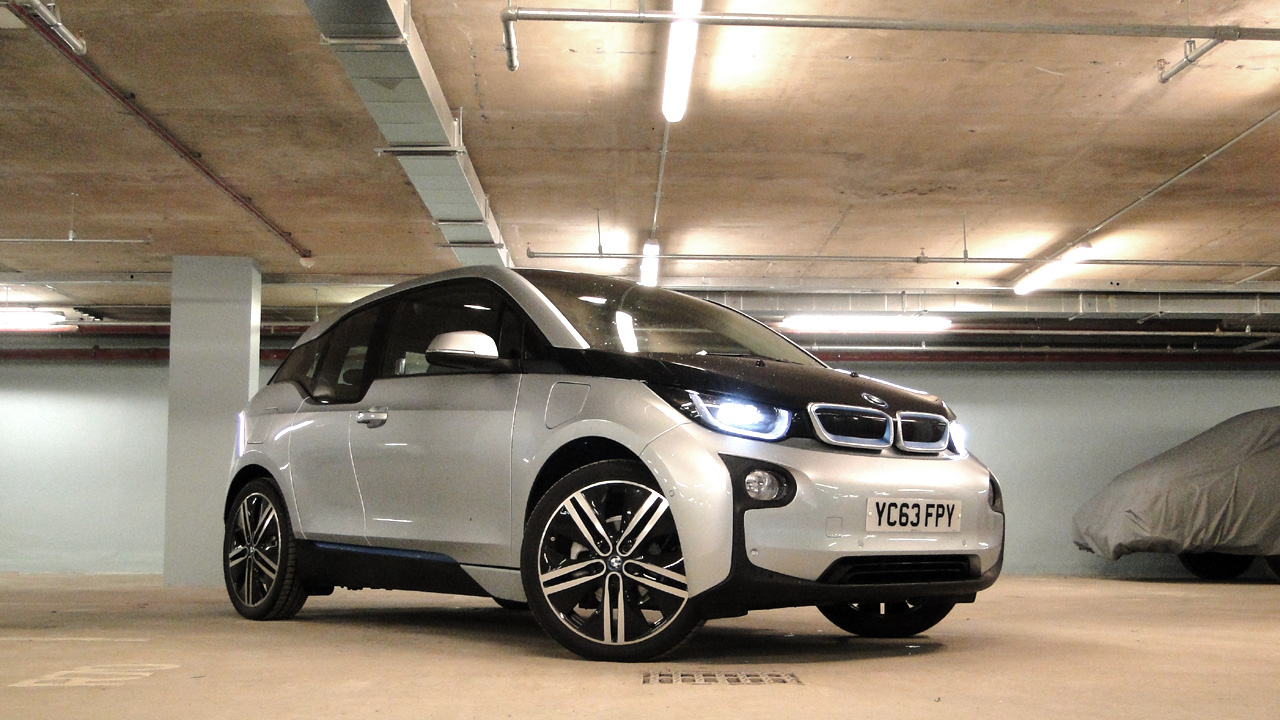
The waiting is over. We've experienced the future of motoring. Actually, according to BMW the new i3 is more than that. It's the future of personal mobility.
All new, all-electric, and an awful lot of carbon-fibre, the i3 is probably the best electric car yet. But that may yet not be enough. In the UK last year, electric cars were just one per cent of the market. Think about that.
The basics
Before we dig down into the tech, let's cover some basics. The i3 starts at £25,380 when your factor in the government's £5,000 grant for electric vehicles. So a fair bit more expensive than the likes of Renault's £13,995 Zoe (though that doesn't buy you a battery, you lease it on top) or the £20,990 you'll need to buy a Nissan Leaf complete with battery.
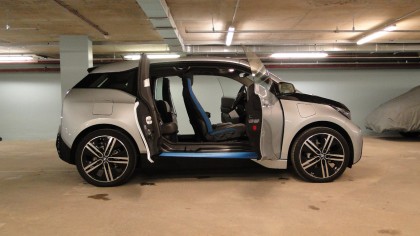
On the other hand, £25,000-odd is probably a bit less than we were expecting and when you take into account all the technology, including the radical carbon fibre construction, suddenly it almost seems cheap.
Anyway, what you get is a car that somewhat defies categorisation, what with its semi four-door (the two rear doors are small suicide doors) open-plan configuration. It's hard to know what class of car it feels like inside. Is it VW Polo / For Fiesta sized? Or Golf / Focus sized?
Whatever, the standard electric model is rated just under 120 miles range on the official NEDC test. BMW is disarmingly honest and says the maximum real-world range for most owners will be 100 miles. There's also a range extended model with a tiny 647cc petrol generator, the one we spent most our time in as it happens, that ups the real-world range to 186 miles.
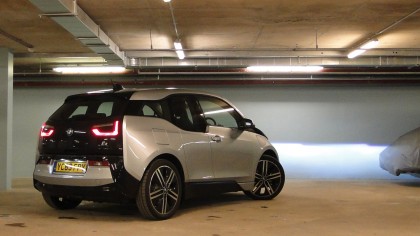
So, that's a sort-of four door hatch in pure electric or range-extended formats that's good for 100 to 180-odd miles depending on configuration.
Sign up for breaking news, reviews, opinion, top tech deals, and more.
The tech
So far, so not hugely revolutionary. Bring on the tech. Inside, it's immediately obvious you're in something a bit different. That starts with the aforementioned suicide doors and open-plan layout.
Open all the doors and you can look right through the whole car. There's no transmission tunnel, of course, so the floor is flat, again contributing to a sense of airiness.
Next up is iDrive with the i3's own version of BMW ConnectedDrive. BMW is pitching the i3 as coming with "connectivity as standard". Indeed, all i3s get Bluetooth, DAB radio, iDrive Touch, cruise control, BMW Business Navigation, BMW Online, BMW Apps and Advanced ConnectedDrive as standard.
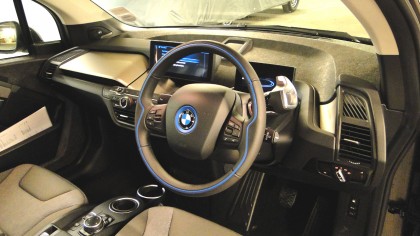
You get all the usual features, including super screen quality, well-executed smartphone integration and a whole hill of clever connected and remote features. That means things like streaming music from the internet and support for sending navigation destinations direct from your phone or laptop to your BMW. Or unlocking it with a smartphone app.
To that BMW has added what you might call a more complete set of personal mobility functionality. That starts with fairly obvious stuff like building in operating range and charging stations into the navigation system. It'll show you estimated range for both standard mode and the Eco Pro mode that reduces both performance and climate control operation to squeeze out a few more miles.
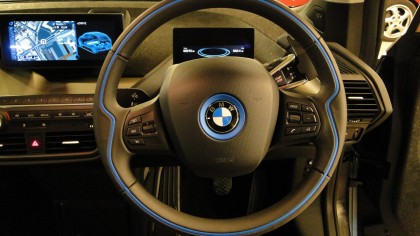
The BMW Remote app also gives you full access to charging functionality, allowing you to remotely check on charging status and schedule it.
Then there's so-called last mile navigation, which transfers navigation to your smartphone and guides you to your destination on foot. BMW is planning full integration with public transport, but it's not a feature we've yet experienced.
This kind of total mobility fusing car with public transport and walking is very popular from a PR perspective. It's very right-on, too, to be a car company and publicly embrace public transport. Exactly how well it will work, is yet to be seen.
Technology and cars. Increasingly the twain shall meet. Which is handy, because Jeremy (Twitter) is addicted to both. Long-time tech journalist, former editor of iCar magazine and incumbent car guru for T3 magazine, Jeremy reckons in-car technology is about to go thermonuclear. No, not exploding cars. That would be silly. And dangerous. But rather an explosive period of unprecedented innovation. Enjoy the ride.